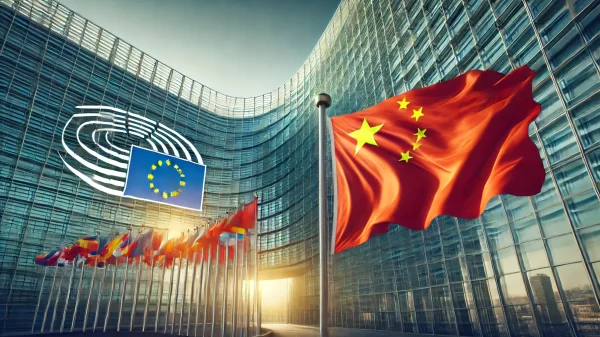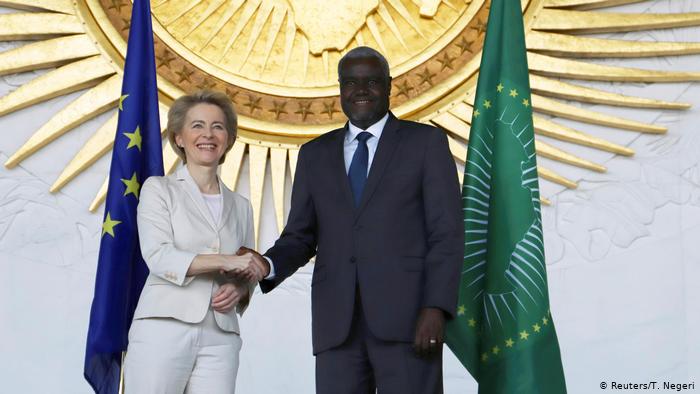The EU is poised for a new era of proactivity in Africa. Simultaneously, Africa is being swept by demand for a new wave of youthful, job-focused leadership. The EU must seize the potential in this new kind of leadership if they are to successfully revitalise the relationship.
Since assuming the EU presidency, France has made Africa a top priority as it looks to prove that the bloc remains a major global player. When presenting France’s plans for the EU presidency in December 2021, President Macron said he wanted to “build an economic and financial New Deal with Africa” to awaken the “tired” relationship between the two continents.
The EU-Africa Summit, taking place on 17-18 February, will be a particular focus-point for forming key relationships to realise this ambition making. France will be seeking to rejuvenate the relationship with Africa at this summit. Yet the decision to connect only African civil society – the first time not meeting heads of state since 1973 – marks a change in approach from the EU. The French government says that the new arrangement is intended to enable “the voice of Africa’s youth to be listened to” and to “leave behind obsolete methods and networks.” France will be trying to disprove the popular notion that France supports tyranny on the continent. In Chad, for example, the French president offered support after the assassination of President Idriss Dèby to the military junta installed by Dèby’s son Mahmat.
One of the common narratives likely to emerge from African civil society groups at the summit is a growing discontent with ‘old-style’, establishment leadership in Africa, and demand for the EU to secure closer partnerships with
Across Africa, people – particularly youth – have grown tired of a perceived ‘old style’ of leader. Candidates who are perceived as old, senile, and part of the establishment are out.
Candidates who can prove themselves to be youthful, jobs-driven, and bold are in.
In several countries, discontent with establishment figures has resulted in violent ousting, with no new democratic leadership but military takeovers. In October 2021, the Sudanese military took control of the government, forcing Prime Minister Abdalla Hamdok to later resign amid mass protests. In September 2021, Guinean president Alpha Condé – who presided over the brutal suppression of protests amid claims of election fraud – was captured and expelled from office by a military junta.
Elsewhere, however, discontent has resulted in the peaceful transition of power, and a genuine ‘new wave’ of African leadership. In Zambia, businessman Hakainde Hichilema shocked the world in August 2021 as he was elected to office on a ticket of economic transformation and a break from establishment politics. Hichilema has inspired opposition leaders and voters alike, proving that democratic systems can produce real change. Since becoming president, Hichilema has renewed Zambia’s partnership with the EU in the areas of democracy, human rights, and economic stability – a stark contrast from the isolated, endemically corrupt regime of the previous president.
As exemplified by Hichilema, members of this new wave offer a fresh start for the EU-Africa relations. This is exactly what the bloc needs to achieve the lofty aims outlined by Macron. As the EU-Africa summit approaches, European leaders should be looking on the horizon for where the next changes to democratic leadership could offer opportunity.
As Africa’s most populous nation with an election due to take place in late 2023, Nigeria is likely to be a focus for the EU’s Africa-drive. What’s more, a number of factors indicate that analysts should expect a new style of leader on the horizon. With 67 percent of the population living in poverty – despite the country’s large GDP – jobs will be high on the agenda for many voters. Moreover, President Muhammadu Buhari has drawn heavy criticism for his long absences from the country to seek medical treatment, suggesting youthful, healthy candidate will be an important factor in voters’ minds.
One Nigerian candidate who aligns with the new wave African leader is Dr. Bukola Saraki. The youthful Saraki – occasionally seen playing sports with family – stands in stark contrast to Buhari, whose precise health issues remain a guarded secret. Moreover, when president of Nigeria’s Senate, Saraki showed the motivation and ability to reverse the trajectory of the country’s employment rate. In 2017, for instance, Saraki passed 11 economic bills to help create 7.5 million jobs. In addition, Saraki’s background as a London-educated medical doctor could also lend him extra credibility following the COVID-19 pandemic.
A future generation of leaders belonging to this new wave has much to offer the EU: a fresh outlook, energy and focus to revitalise the EU-Africa partnership. While holding the EU presidency, France should in particular make efforts to build relationships with the proponents of this new wave, across both civil society and the political space.
Share this article:

























